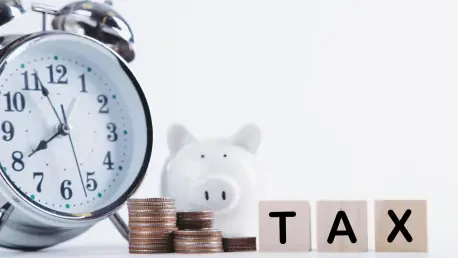The battle over economic projections concerning the Republican tax plan has stirred intense debate on Capitol Hill. With the Congressional Budget Office (CBO) providing cautious estimates, Republicans argue for more optimistic forecasts, claiming that tax cuts will spur unprecedented economic growth. This roundup gathers insights from economists, policymakers, and various experts on the projected economic impact of this tax strategy, highlighting the complex intersection of fiscal policy and national financial health.
Projections and Predictions: Diverse Expert Opinions
Fiscal Projections: The Republican Outlook vs. CBO Assessments
Republican leaders confidently assert that the “One Big Beautiful Bill Act” represents a transformative move, driving substantial economic growth without burdening the national debt. They criticize the CBO’s estimates as conservative, arguing that the tax plan will catalyze economic expansion by boosting consumer spending and encouraging business investments. However, the CBO, entrusted with providing neutral analysis, warns of significant financial implications, suggesting the plan could swell the national debt by trillions over the next decade.
Evaluating Historical Context and Current Assessment
Experts often refer to historical tax cuts to elucidate the potential impacts of recent legislative measures. Some point to past tax reforms as evidence that cuts can stimulate growth, albeit not to the extent necessary to offset costs entirely. Economists largely view these precedents as mixed, emphasizing the inherent difficulty of predicting dynamic reactions of large-scale fiscal policy shifts. This raises ongoing questions about whether fiscal disruptions can genuinely sustain long-term growth.
Complexities in Evaluating Economic Predictions
The divergence between current laws and existing policies is a sticking point in many analyses. Proponents of the tax plan focus on adjustments based on presumed policy continuations rather than legal alterations. This highlights a critical challenge in fiscal forecasting: the tension between static assessments, which do not account for behavioral changes, and dynamic approaches, anticipating shifts in economic activity as direct effects of policy changes.
Policy Forecasting and Economic Implications
The Role of Nonpartisan Analysis in Public Policy
Nonpartisan entities like the CBO are pivotal in guiding public policy, offering insights intended to transcend political biases. While Republicans argue for more positive growth forecasts, the CBO’s analysis is based on careful assessments without the influence of partisan perspectives. This independence often becomes a focal point of contention, as analysis outcomes rarely align perfectly with political ambitions.
Regional Versus National Impacts
Fiscal policy’s uneven impact across different regions complicates the analysis of tax strategies. Regions with varying economic foundations experience differing ramifications, prompting some experts to underscore the importance of understanding localized effects within the broader national framework. Concerns about regional disparity in tax policy impacts bring complexity to discussions on national debt and economic health.
Innovative Approaches to Bridging Political and Economic Gaps
As the debate intensifies, calls for innovative solutions are growing louder. There is a push among some policymakers to reconcile the various economic perspectives by developing new frameworks that integrate data-driven insights with political feasibility. Bridging the divide between economic theories and legislative actions involves rethinking traditional assumptions and crafting cohesive strategies to ensure fiscal responsibility while also supporting growth.
The Forward Path: Insights and Recommendations
Navigating Economic Uncertainty
Current discussions emphasize the need for a balanced approach to fiscal strategy that considers potential economic opportunities and inherent fiscal responsibilities. Policymakers are encouraged to refine evaluations of proposed changes, considering factors like potential deficits and growth opportunities. Strategic recommendations from experts suggest the importance of iterative assessment and flexible policy adaptation to ensure economic resilience.
Engaging with Complex Tax Policy Issues
To engage effectively in tax policy debates, stakeholders must remain informed and adaptive. Understanding the nuances of economic projections, integrating diverse expert opinions, and maintaining an open dialogue with policymaking bodies are crucial components in driving informed decisions. Encouraging continuous evaluation and embracing pragmatic fiscal reforms can foster a more informed and effective policy environment.
By analyzing diverse perspectives on the economic ramifications of the GOP tax plan, readers gain insights into potential pathways forward. The complexity inherent in fiscal decision-making underscores the importance of sound economic forecasting, the reliability of nonpartisan analyses, and open-minded negotiations across political lines. As policymakers confront the challenges of balancing fiscal responsibility with growth aspirations, engaging with informed expert analyses will remain vital.









